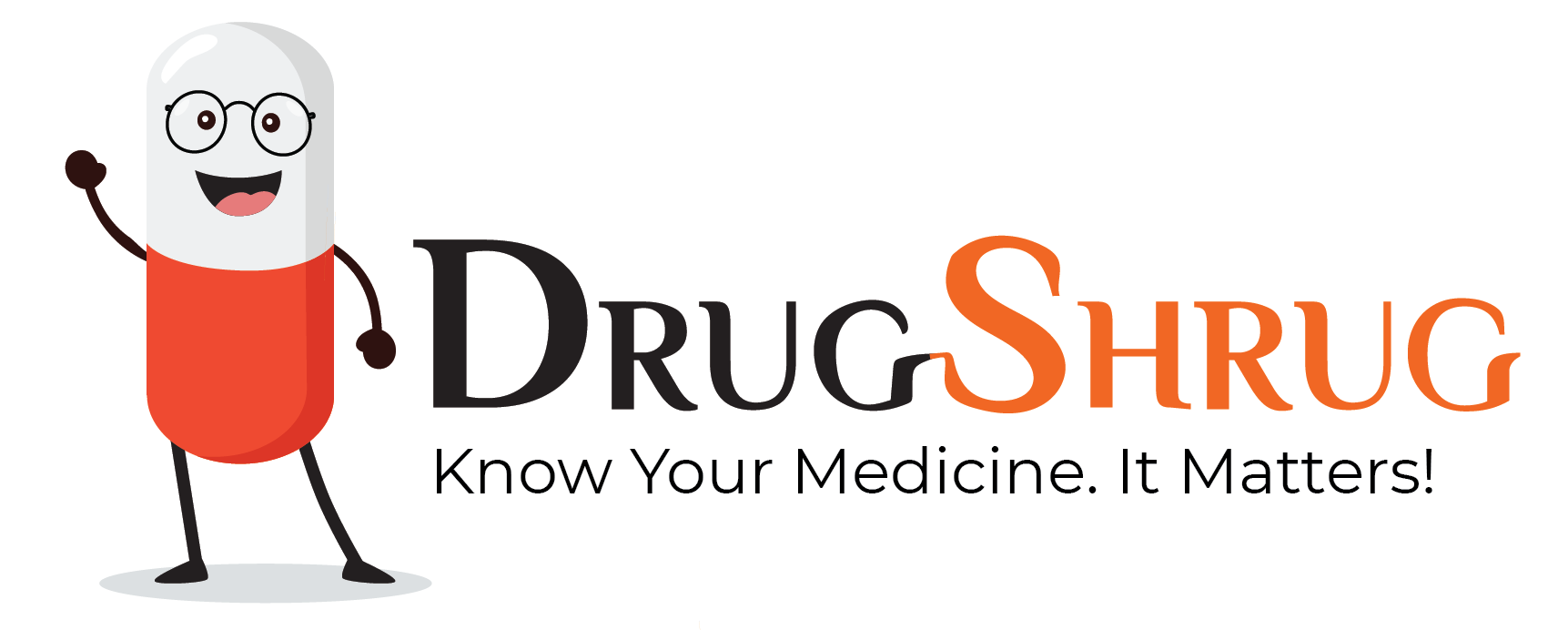What is Jojoba topical?
Jojoba is a plant also known by the names like Buxus chinensis, Deernut, Goatnut, Huile de Jojoba, Jojoba Oil, Pignut, Simmondsia californica, Simmondsia chinensis, and others. Seeds of this shrub are utilized in preparing jojoba oil and jojoba wax. Jojoba topical has been used in alternative medicine for psoriasis, Alzheimer’s disease, acne, sunburns, cracked skin, hair loss and as mosquito repellent and in other roles as well. Nonetheless, efficacy of the remedy has not been scientifically confirmed.
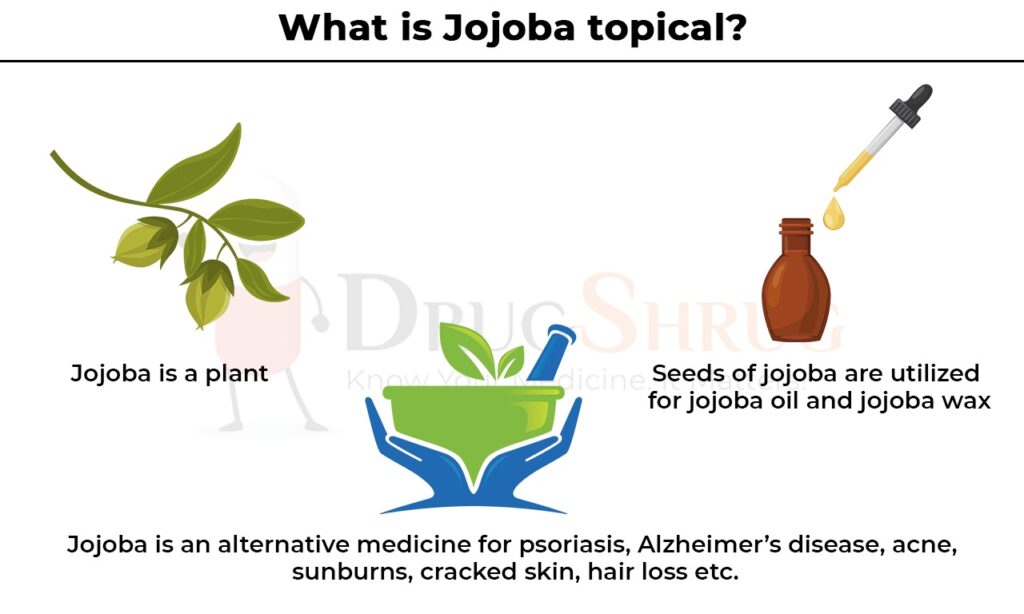
The effectiveness of jojoba to treat any health condition is dubitable and its curative attribute has not been recognized and authorised by FDA. Do not substitute Jojoba with the medicine recommended by your doctor. Jojoba is popular and is available in the market as a herbal supplement. Production of numerous herbal complements and herbal compounds in their respective industries lack any set manufacture standards. This results in increased adulteration with toxic metals or other drugs.
Therefore, it is essential to be cautious while purchasing Herbal or health supplements and should be bought from credible places to get less corrupted product.It may also be used for purposes not listed in this medication guide.
What are the common conditions in which Jojoba topical prescribed?
This remedy is generally used to treat the following conditions:
- Alzheimer’s disease
- Skin problems: Rough skin, acne, sunburns
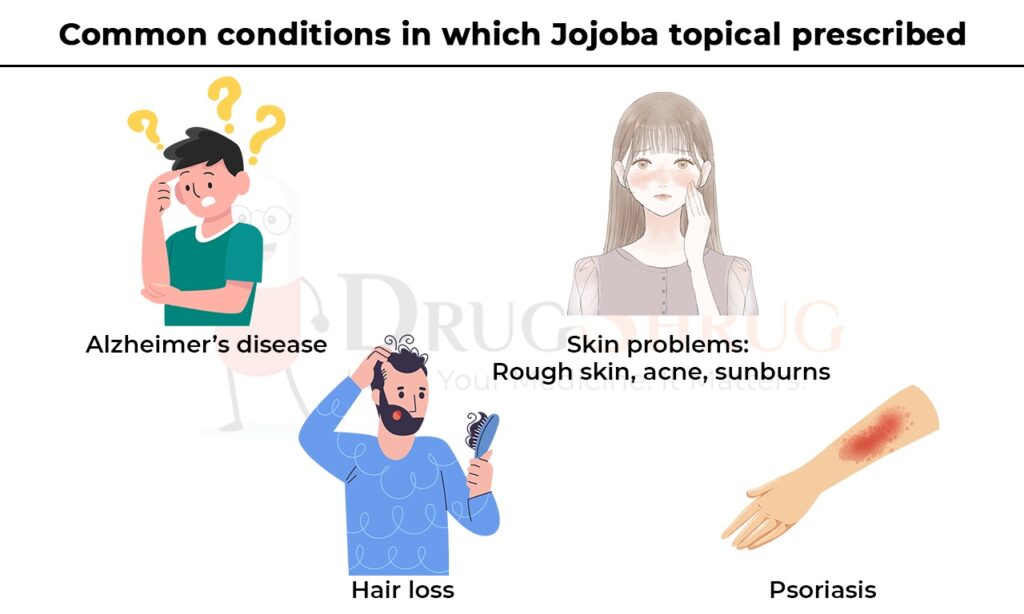
- Hair loss
- Psoriasis
How should I take Jojoba topical?
When considering the use of herbal supplements, seek the advice of your doctor. You may also consider consulting a practitioner who is trained in the use of herbal/health supplements. If you choose to use jojoba, use it as directed on the package or as directed by your doctor, pharmacist, or other healthcare providers.
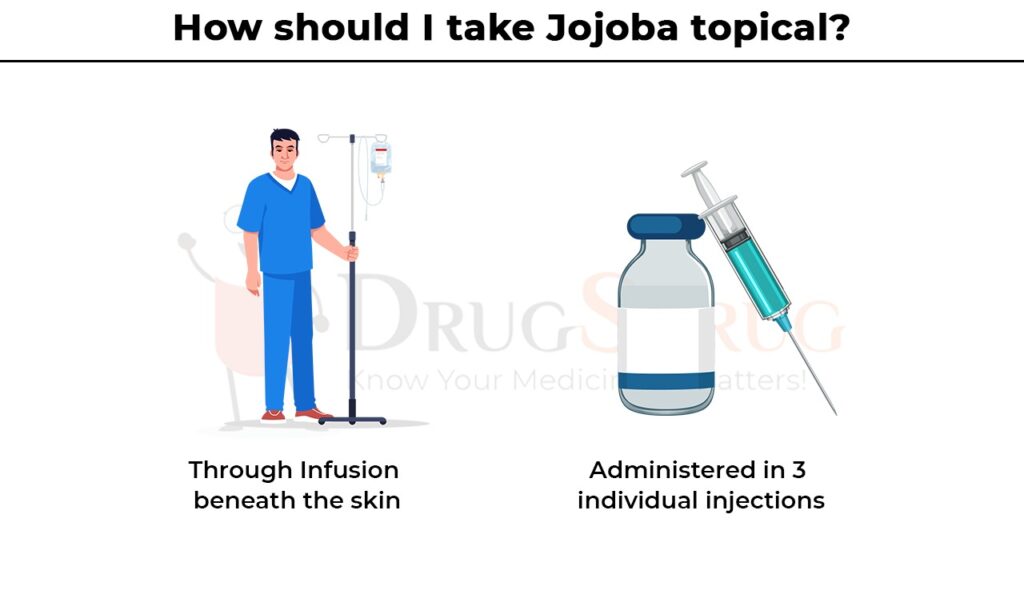
Do not use more of this product than is recommended on the label. Call your doctor if the condition you are treating with jojoba does not improve, or if it gets worse while using this product. Store at room temperature in a cool and dry place.
When you should not take Jojoba topical?
Jojoba is not deemed relevant and preferred in particular medical conditions. Therefore, use the medicine only with the guidance of your doctor. However, you can use it is safe to use on the skin [only] and not for other health purposes during pregnancy. This remedy is unsafe to ingest orally by the expectant mothers. Avoid using the product in your pregnancy except without your doctor’s advice.
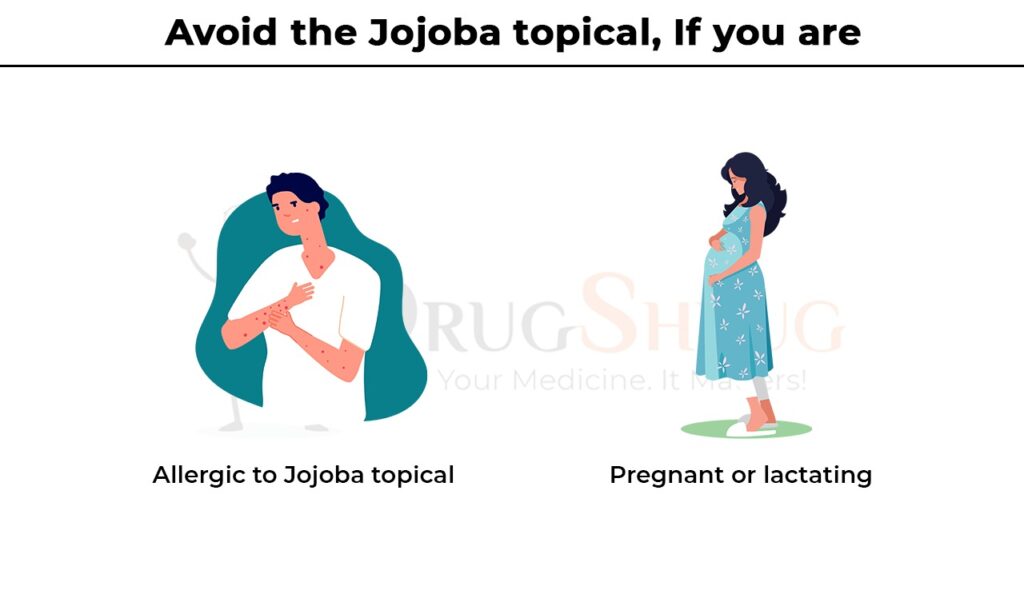
While the medication is secure to be used by breast- feeding women, but the use should be limited to the skin alone. Adhere to the directions and guidelines of your doctor and as mentioned on the prescription label. Acquaint your medic with the medicines you take, and allergies and ailments you ever had.
What are the possible side effects of Jojoba topical?
If you experience the signs of allergic response such as hives; dizziness, difficult breathing; swelling of your face, lips, tongue, or throat get immediate medical assistance. Though all the side- effects of Jojoba topical are yet undiscovered, yet it is esteemed safe for use by most not all side effects are known, jojoba topical is thought to be likely safe for most people.
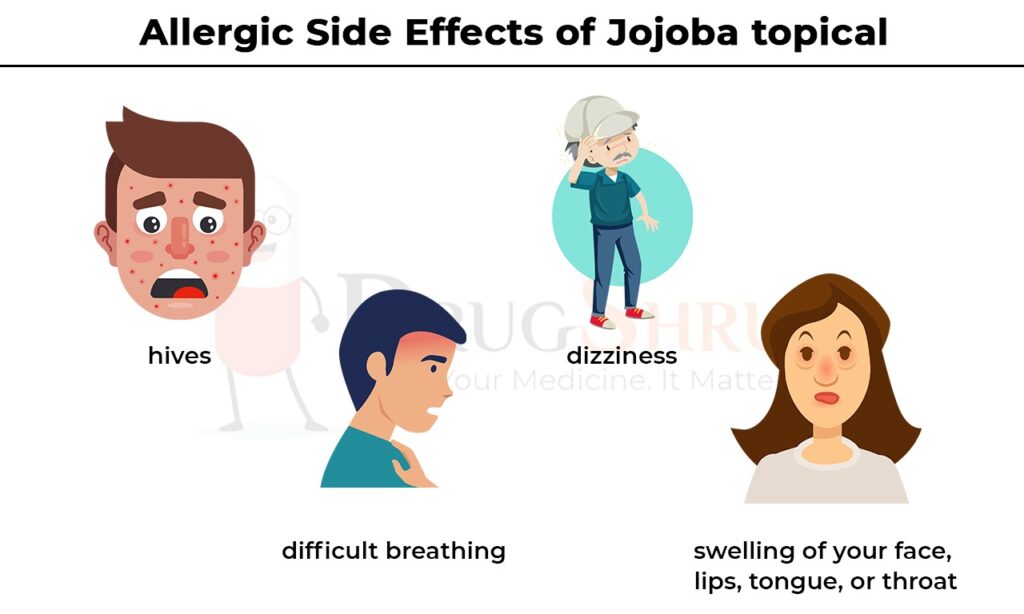
Common side effects may comprise such as skin rashes. However, these all are not the only possible side- effects, as it may show in other symptoms as well. Ask your doctor for clinical guidance about its side effects.
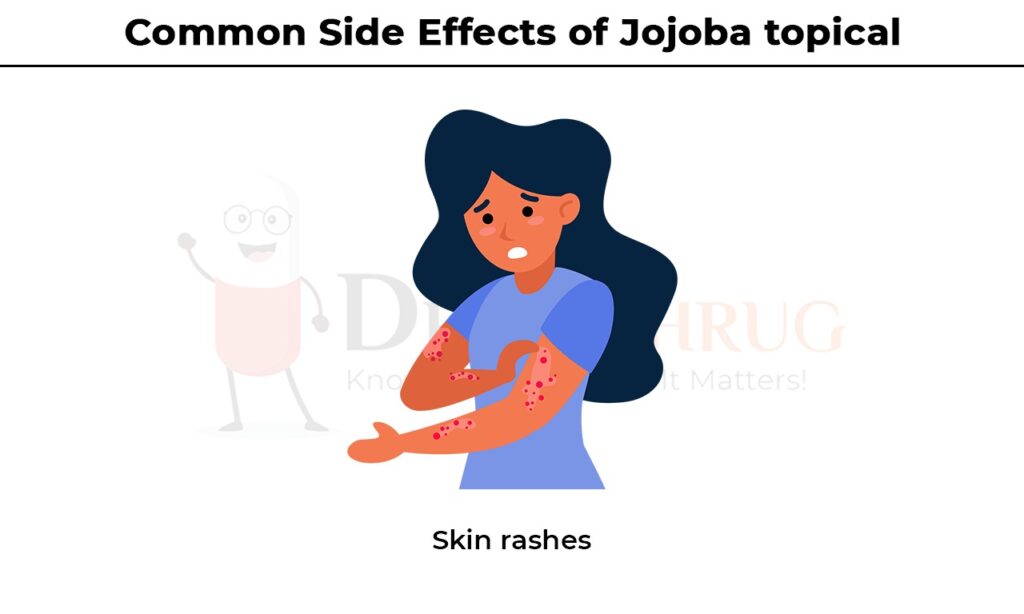
What to do if I miss the dose?
Always try to be punctual in taking your medicine. Although if you miss the dose for any reasons just skip it if it is almost time for your subsequent dose.
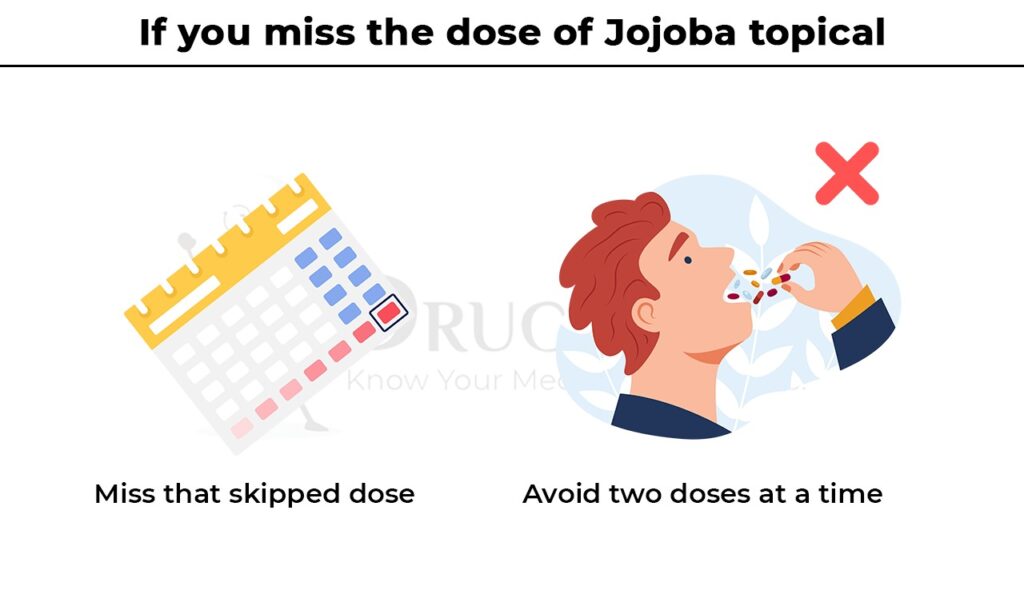
Refrain from taking two doses at a time.
Common Drug Interaction with Jojoba topical
Other medications may interact with the medication, including prescription and over-the-counter drugs, vitamins, and herbal supplements.

It is imperative that you disclose to your doctor regarding your current medicinal course and any medicine that you started or stopped using.
Bottom Line
Jojoba topical is a renowned product to heal various skin conditions such as skin rashes, rough skin, acne, and even as a mosquito repellent. However, it is safe to use still care must be taken in its usage in certain medical condition. Any ignorance on the part of the person may result in adverse consequences. If you observe any side- effects urgently go to your doctor.
Further Reading:
